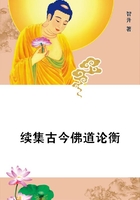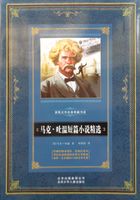A consideration which worked steadily against the Senate in its attacks upon the President, was the prevalent belief that the Tenure of Office Act was unconstitutional in its nature and mischievous in its effects.Although Senator Edmunds had been able to obtain a show of solid party support, it eventually became known that he stood almost alone in the Judiciary Committee in his approval of that act.The case is an instructive revelation of the arbitrary power conferred by the committee system.Members are loath to antagonize a party chairman to whom their own bills must go for approval.Finally, Senator Hoar dared to take the risk, and with such success that on June 21, 1886, the committee reported a bill for the complete repeal of the Tenure of Office Act, the chairman--Senator Edmunds--alone dissenting.When the bill was taken up for consideration, Senator Hoar remarked that he did not believe there were five members of the Senate who really believed in the propriety of that act."It did not seem to me to be quite becoming," he explained, "to ask the Senate to deal with this general question, while the question which arose between the President and the Senate as to the interpretation and administration of the existing law was pending.I thought, as a party man, that I had hardly the right to interfere with the matter which was under the special charge of my honorable friend from Vermont, by challenging a debate upon the general subject from a different point of view."Although delicately put, this statement was in effect a repudiation of the party leadership of Edmunds and in the debate which ensued, not a single Senator came to his support.He stood alone in upholding the propriety of the Tenure of Office Act, arguing that without its restraint "the whole real power and patronage of this government was vested solely in the hands of a President of the United States and his will was the law." He held that the consent of the Senate to appointments was an insufficient check if the President were allowed to remove at his own will and pleasure.He was answered by his own party colleagues and committee associates, Hoar and Evarts.Senator Hoar went so far as to say that in his opinion there was not a single person in this country, in Congress or out of Congress, with the exception of the Senator from Vermont, who did not believe that a necessary step towards reform "must be to impose the responsibility of the Civil Service upon the Executive."Senator Evarts argued that the existing law was incompatible with executive responsibility, for "it placed the Executive power in a strait-jacket." He then pointed out that the President had not the legal right to remove a member of his own Cabinet and asked, "Is not the President imprisoned if his Cabinet are to be his masters by the will of the Senate?" The debate was almost wholly confined to the Republican side of the Senate, for only one Democrat took any part in it.Senator Edmunds was the sole spokesman on his side, but he fought hard against defeat and delivered several elaborate arguments of the "check and balance"type.When the final vote took place, only three Republicans actually voted for the repealing bill, but there were absentees whose votes would have been cast the same way had they been needed to pass the bill.** The bill was passed by thirty yeas and twenty-two nays, and among the nays were several Senators who while members of the House had voted for repeal.The repeal bill passed the House by a vote of 172 to 67, and became law on March 3, 1887President Cleveland had achieved a brilliant victory.In the joust between him and Edmunds, in lists of his adversary's own contriving, he had held victoriously to his course while his opponent had been unhorsed.The granite composure of Senator Edmunds' habitual mien did not permit any sign of disturbance to break through, but his position in the Senate was never again what it had been, and eventually he resigned his seat before the expiration of his term.He retired from public life in 1891, at the age of sixty-three.
From the standpoint of the public welfare, it is to be noted that the issue turned on the maintenance of privilege rather than on the discharge of responsibility.President Cleveland contended that he was not responsible to the Senate but to the people for the way in which he exercised his trusteeship.But the phrase "the people" is an abstraction which has no force save as it receives concrete form in appropriate institutions.It is the essential characteristic of a sound constitutional system that it supplies such institutions, so as to put executive authority on its good behavior by steady pressure of responsibility through full publicity and detailed criticism.This result, the Senate fails to secure because it keeps trying to invade executive authority, and to seize the appointing power instead of seeking to enforce executive responsibility.This point was forcibly put by "The Nation" when it said: "There is only one way of securing the presentation to the Senate of all the papers and documents which influence the President in making either removals or appointments, and that is a simple way, and one wholly within the reach of the Senators.They have only to alter their rules, and make executive sessions as public as legislative sessions, in order to drive the President not only into making no nominations for which he cannot give creditable reasons, but into furnishing every creditable reason for the nomination which he may have in his possession."** "The Nation," March 11, 1888.
During the struggle, an effort was made to bring about this very reform, under the lead of a Republican Senator, Orville H.Platt of Connecticut.On April 13,1886, he delivered a carefully prepared speech, based upon much research, in which he showed that the rule of secrecy in executive sessions could not claim the sanction of the founders of the government.It is true that the Senate originally sat with closed doors for all sorts of business, but it discontinued the practice after a few years.It was not until 1800, six years after the practice of public sessions had been adopted, that any rule of secrecy was applied to business transacted in executive sessions.Senator Platt's motion to repeal this rule met with determined opposition on both sides of the chamber, coupled with an indisposition to discuss the matter.When it came up for consideration on the 15th of December, Senator Hoar moved to lay it on the table, which was done by a vote of thirty-three to twenty-one.Such prominent Democratic leaders as Gorman of Maryland and Vest of Missouri voted with Republican leaders like Evarts, Edmunds, Allison, and Harrison, in favor of Hoar's motion, while Hoar's own colleague, Senator Dawes, together with such eminent Republicans as Frye of Maine, Hawley of Connecticut, and Sherman of Ohio voted with Platt.Thus, any party responsibility for the result was successfully avoided, and an issue of great constitutional importance was laid away without any apparent stir of popular sentiment.















